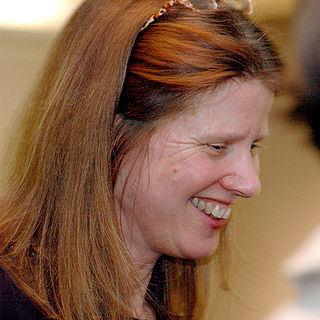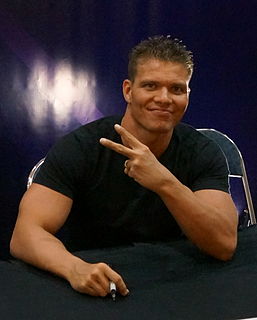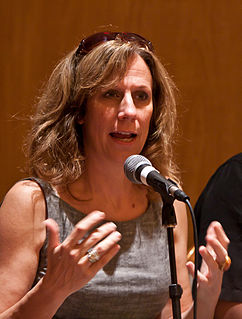A Quote by R. A. Salvatore
You have to understand that while I pre-plot the meta story of a given book, I often have no idea of what will happen on the next page, let alone the next chapter. That's what makes it fun for me; I write the books the same way many people read them.
Related Quotes
I first heard the term "meta-novel" at a writer's conference in Tulsa, Oklahoma. The idea is that even though each book in a series stands alone, when read collectively they form one big ongoing novel about the main character. Each book represents its own arc: in book one of the series we meet the character and establish a meta-goal that will carry him through further books, in book two that meta-goal is tested, in book three - you get the picture.
When I am working on a book or a story I write every morning as soon after first light as possible. There is no one to disturb you and is it is cool and you come to your work and warm as you write. You read what you have written and, as you always stop when you know what is going to happen next, you go on from there. You write until you come to a place where you still have your juice and know what will happen next and you stop and try to live through until the next day when you hit again.
A novel can educate to some extent, but first a novel has to entertain. That's the contract with the reader: you give me ten hours and I'll give you a reason to turn every page. I have a commitment to accessibility. I believe in plot. I want an English professor to understand the symbolism while at the same time I want the people I grew up with - who may not often read anything but the Sears catalog - to read my books.
I had read [Charles] Dickens's novels were often published serially. I thought it would be fun to write a book, just sitting down and writing a chapter every day, not knowing what would happen next. So that's how I wrote the first draft. And then of course I had to go back and make sure everything worked and change things.
Sometimes kids ask how I've been able to write so many books. The answer is simple: one word at a time. Which is another good lesson, I think. You don't have to do everything at once. You don't have to know how every story is going to end. You just have to take that next step, look for that next idea, write that next word.
The short story is so much about inevitability and this feeling that things always had to be this one way, and I wanted the apocalypses to blow that idea apart. I hope it feels that way. I hope the book invites people to read the stories in order and then, if they feel like it, maybe not read them in order the next time.
I have learned that my assignment is to write books for people who do not like to read books. I really try to connect with people who are not given to spending a lot of time with an open book. Pay day to me is when somebody comes up to me and says, "I never read books but I read yours." I have a heart for that person.
Well, first you have to love writing. A lot of authors love having written. But I enjoy the actual writing. Beside that, I think the main reason I can be so prolific is the huge amount of planning I do before I start to write. I do a very complete, chapter-by-chapter outline of every book I write. When I sit down to write, I already know everything that's going to happen in the book. This means I've done all the important thinking, and I can relax and enjoy the writing. I could never write so many books if I didn't outline them first.
I had self-doubt about whether my story was interesting to people. I didn't want to write something that was anecdotal. It was important to me that people would get something out of my book. I want people to read it and say, "Now I don't feel so alone," or "I'm going to remember that next time I'm being an asshole."



































